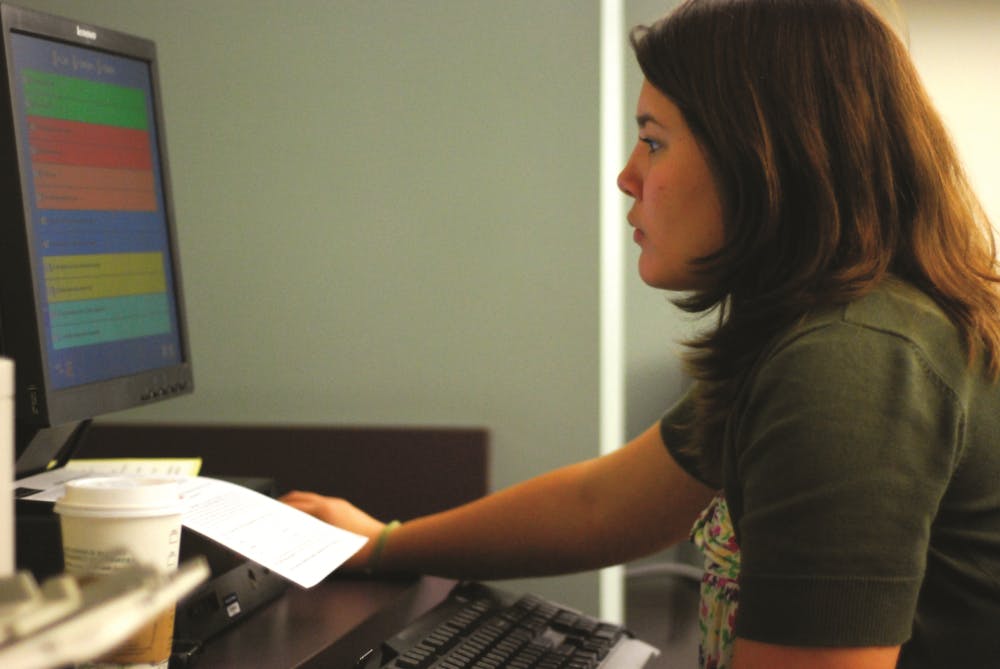Students in all fields reconsider their declared majors after midterms
(-- The Beacon)
By Kate Peifer Staff Writer peifer14@up.edu
With the onslaught of midterms, papers and projects completed, students are flooding the Career Service and Freshman Resource centers, unsure if their current major is the one for them.
The phenomenon is not unique to UP. According to data gathered by researchers from the University of California at Los Angeles (UCLA), 60 percent of students with a pre-medical, engineering or science major end up switching to a different major or not receiving a degree at all.
"The introduction classes for majors like nursing (and) engineering are the indicator of whether they want to continue with it," Assistant Director of Career Services Mary Beth Snell said.
Although mathematics and the sciences have a significant number of students switching, it is common to see students from other fields rethinking their majors before registering for classes, according to Snell.
"We see a lot of undecided students and students from every major wanting to change," Director of Career Services Amy Cavanaugh said. "The national average of the number of times students change majors is three to five times."
According to Snell, there is an underlying notion for college freshmen that one should know or have a sense of what major to declare.
"Many students come into college with the idea that their major should be preset," sophomore math major Emilia Holbik said. "I started out with math, to English, to business and back to math."
According to Snell, the ideal time for a student to declare his or her major at UP is during sophomore year, but the goal should be to find the "right fit."
Sophomore Mckenzie Oliver decided prior nursing major was simply not for her, and she switched her major to undecided last semester.
"I am thinking of doing psychology or social work," Oliver said. "I am happy undecided and can't wait until the end of the semester when I'll really know what I want to do and can declare a major finally."
The key to finding one's niche, according to Cavanaugh, is to take full advantage of all resources on campus – Career Service Center, the Freshman Resource Center, faculty, upperclassmen and alumni – and to get involved in clubs and internships.
"Follow what you enjoy and try classes in different areas," Cavanaugh said. "That is the great thing about the core curriculum here."
The process of changing majors at UP consists of filling out forms online and receiving acceptance and signatures from the department chair and the dean of a student's current school, such as the Pamplin School of Business or the School of Nursing.
"The process was very easy," Oliver said. "And Elisa Majors (nursing program counselor) was extremely helpful and supportive."
Both Holbik and Oliver said they spoke with many people during the process of switching majors, including the Director of the Freshman Resource Center, Brenda Greiner, as well as multiple faculty members.
"One thing that is important for students to know is that your major isn't going to determine your career," Snell said. "It's not a decision that is going to determine if you're successful or not either."
(-- The Beacon)








